 Kate, one of our awesome pioneering farm managers, has been conducting various research as we develop this farm project; both to help us make more informed management decisions in our grazing plan as well as allow us to demonstrate what impact our actions have on the land over time. So much in the Permaculture world seems based on circumstantial evidence; and in response we aim to design, implement, monitor and refine what we do based on measurable and replicable methods. Moving to a new land requires endless observation, recording, researching & monitoring the impact of our actions, so here's a glimpse into how we have begun doing that here at the farm. We have around 40 species in our very varied pasture, with large variances in soil. Whilst the research conducted so far is just the beginning, it has been incredibly beneficial in terms of really getting a good sense of what we are actually working with. Bravo Kate, we are so happy to have had you with us here for this incredible first season. It feels so important more folks in the alternative agriculture/ permaculture world start producing useful data for the benefit of all, thank you so much for the integrity & diligence you contribute.
2 Comments
Here's a little fly-by over the farm center today. Incredible to reflect on the last 4 months where we have been joined by awesome people from all corners of the globe getting deep into education and action during this unique time establishing all systems from scratch. Empowering other's to manage their lives holistically and design solutions to bring their dreams forth is a major part of the Holistic Context we manage towards, and something we are excited to be able to share with so many bright, intelligent & gifted folks. It's been an epic ride so far! With just 3 weeks left of Internship #2 and our final PDC of the season around the corner we are surely looking forward to a restful winter to recuperate and plan for next season; with more animals, new trainings and new people bringing knowledge, skills and passion to everything that happens here at Ridgedale. We will be posting more about the opportunities for Core Team roles for 2015 (sign up to the Newsletter here) with more spaces for a bigger team to make next year even more incredible. Stay posted, we'll be reviewing the year and blogging a lot more over the winter to inform & support others who wish to undertake a similar journey. Last PDC at the farm for 2014It’s almost like the weather knows, the winds arrived today. As the change awaits us tomorrow we are being moved towards it with a blustery nudge from the direction of Norway. Perhaps the winds represent a much bigger change than just here on our little farm in Scandinavia, perhaps they signify something more complex, more global… Presentation Day has arrived.
DAY 8
A little bit of a sleep in this morning but the students are so keen that they voted to pass up on the regular full mid-PDC day off, hungry to continue the un-learning journey here at Ridgedale. I’ve never been to a PDC where the rest day was bypassed… these kids are keen! Some even took a stroll down to the lake to watch the sunrise and have a dip, a very popular recreation activity here on the farm. DAY 7
I fair run to class after breakfast because today is soils day, this is one of my favourites. Richard points out the absolute importance of understanding soils when considering patterns, ecology, and life. As PDC#2 rolls at Ridgdale Permaculture, we publishing a daily blog to detail the experience for those who may be interested in what takes place at one of our trainings as we establish Scandinavia's first Keyline Designed farm & dedicated Regenerative Ag/ Permaculture Edu hub at a working farm. Daniel McGough, one of our pioneer Farm Managers joining us from Australia shares his experience of the (Un)Learning journey over the next 2 weeks. Here's Day 3...
As PDC#2 rolls at Ridgdale Permaculture, we publishing a daily blog to detail the experience for those who may be interested in what takes place at one of our trainings as we establish Scandinavia's first Keyline Designed farm & dedicated Regenerative Ag/ Permaculture Edu hub at a working farm. Daniel McGough, one of our pioneer Farm Managers joining us from Australia shares his experience of the (Un)Learning journey over the next 2 weeks. Here's Day 3...
24/5/2014 Perennial Cropping: Silvopasture meets Forest Gardening meets Keyline Design ( soon to meet Holistic Management!)Read Now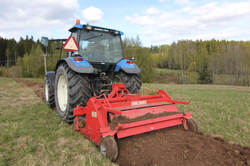 This article documents the major patterning of the farm at Ridgedale PERMACULTURE as we laid the Keyline tree lanes and planted thousands of long term perennial crops within our pasture lanes. For a better introduction to the farm's context you can read an article here. Water systems and Keyline patterning is also addressed here. The original plan for the tree layers of the farm design is outlined in another article available here. So now we explain & assess the actual implementation. For context, at the time of this work we ourselves had only been on site for 6 weeks and the planning, layout, machine work and major planting all took place in Week 1 and 2 of our 10 Week Internship. (We have another 10 Week Internship program running July- Sept) 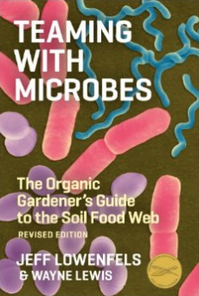 Want to be in to win a free copy of this AWESOME book? As part of our fair share policy we have been giving away free awesome books to people all over the globe every fortnight (well, to be fair, we have been a little slack lately with all that's going on and our current internet connection). The 2011 Garden Writers of America Gold Award for Best Writing/Book proves soil is anything but an inert substance. Healthy soil is teeming with life; and not just earthworms and insects, but a staggering multitude of bacteria, fungi, and other microorganisms. When we use chemical fertilizers, we injure the microbial life that sustains healthy plants, and thus become increasingly dependent on an arsenal of artificial substances, many of them toxic to humans as well as other forms of life. But there is an alternative to this vicious circle: to garden in a way that strengthens, rather than destroys, the soil food web; the complex world of soil-dwelling organisms whose interactions create a nurturing environment for plants. 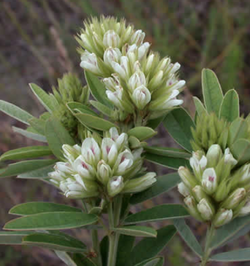 Lespedeza capitata, bush clover Lespedeza capitata, bush clover We can think of at least 180 great forest garden & perennial crops for cold climate Sweden. Want to hear about them? Over the course of the next year we will profile 5 a week on the blog. Perennial plants and crops offer a low energy, oil & resource input based foundation for future-proof agricultures. By default if an agriculture is to be called regenerative the bottom line is that it must be soil building, not soil depleting. Relentless deep tillage & poor soil husbandry (wifery?!) contributes to the majority of the 24 billion tons of topsoil lost every year on planet water. We are going to be focused on holistic polyculture grazing and perennial production at ridgedale over most of the site as this represents the most effective way to restore our degraded landscape, produce high value produce and ensure the future resource base we are managing holistically for in our decision making. 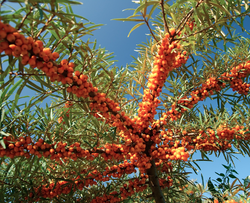 Hippophae rhamnoides, Sea Buckthorn Hippophae rhamnoides, Sea Buckthorn We can think of at least 180 great forest garden & perennial crops for cold climate Sweden. Want to hear about them? Over the course of the next year we will profile 5 a week on the blog. Perennial plants and crops offer a low energy, oil & resource input based foundation for future-proof agricultures. By default if an agriculture is to be called regenerative the bottom line is that it must be soil building, not soil depleting. Relentless deep tillage & poor soil husbandry (wifery?!) contributes to the majority of the 24 billion tons of topsoil lost every year on planet water. We are going to be focused on holistic polyculture grazing and perennial production at ridgedale over most of the site as this represents the most effective way to restore our degraded landscape, produce high value produce and ensure the future resource base we are managing holistically for in our decision making. 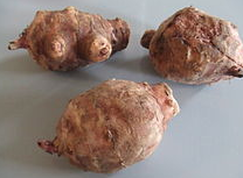 Helianthus tuberosus, Jerusalem Artichoke Helianthus tuberosus, Jerusalem Artichoke We can think of at least 180 great forest garden & perennial crops for cold climate Sweden. Want to hear about them? Over the course of the next year we will profile 5 a week on the blog. Perennial plants and crops offer a low energy, oil & resource input based foundation for future-proof agricultures. By default if an agriculture is to be called regenerative the bottom line is that it must be soil building, not soil depleting. Relentless deep tillage & poor soil husbandry (wifery?!) contributes to the majority of the 24 billion tons of topsoil lost every year on planet water. We are going to be focused on holistic polyculture grazing and perennial production at ridgedale over most of the site as this represents the most effective way to restore our degraded landscape, produce high value produce and ensure the future resource base we are managing holistically for in our decision making. 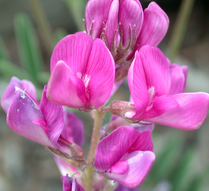 Hedysarum boreale, Sweetvetch Hedysarum boreale, Sweetvetch We can think of at least 180 great forest garden & perennial crops for cold climate Sweden. Want to hear about them? Over the course of the next year we will profile 5 a week on the blog. Perennial plants and crops offer a low energy, oil & resource input based foundation for future-proof agricultures. By default if an agriculture is to be called regenerative the bottom line is that it must be soil building, not soil depleting. Relentless deep tillage & poor soil husbandry (wifery?!) contributes to the majority of the 24 billion tons of topsoil lost every year on planet water. We are going to be focused on holistic polyculture grazing and perennial production at ridgedale over most of the site as this represents the most effective way to restore our degraded landscape, produce high value produce and ensure the future resource base we are managing holistically for in our decision making. 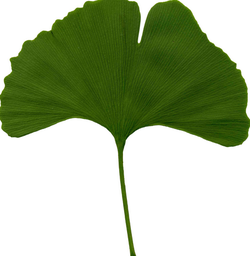 Ginkgo biloba, ginkgo Ginkgo biloba, ginkgo We can think of at least 180 great forest garden & perennial crops for cold climate Sweden. Want to hear about them? Over the course of the next year we will profile 5 a week on the blog. Perennial plants and crops offer a low energy, oil & resource input based foundation for future-proof agricultures. By default if an agriculture is to be called regenerative the bottom line is that it must be soil building, not soil depleting. Relentless deep tillage & poor soil husbandry (wifery?!) contributes to the majority of the 24 billion tons of topsoil lost every year on planet water. We are going to be focused on holistic polyculture grazing and perennial production at ridgedale over most of the site as this represents the most effective way to restore our degraded landscape, produce high value produce and ensure the future resource base we are managing holistically for in our decision making. 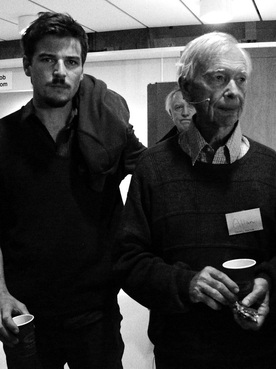 Meeting with Allan Savory in Sweden Meeting with Allan Savory in Sweden Allan Savory's work observing & managing game reserves, ranches & national parks as a biologist is only part of what he describes led him to his breakthroughs fighting desertification (and the subsequent social & economic breakdown in some of the world's most hostile environments) through holistically planned grazing. His role as President of the opposition party against a racist government in Rhodesia (now Zimbabwe) eventually forced him to seek exile in the US where he observed desertification in National Parklands as bad as anything in Africa, yet with large herbivores having been absent for decades. As late as 1969 he was advocating culling large populations of wild animals such as elephants and hippos, when they were appearing to be destroying their habitat. He had participated in the culling of 40,000 elephants in the 1950s but he later concluded the culling did not reverse the degradation of the land, calling that project "the saddest and greatest blunder of my life" in his recent TED talk. Savory was inspired by earlier work of French agronomist André Voisin (some works available freely at the awesome resource http://www.soilandhealth.org/) who observed that cattle tended to return to the same patch of grass after about three days. Savory saw this as a solution of the riddle of time and that it was the length of time cattle were left in the same area and not just simple overgrazing which led to problems. Holistic planned grazing is now happening on every continent on over 15M Ha. 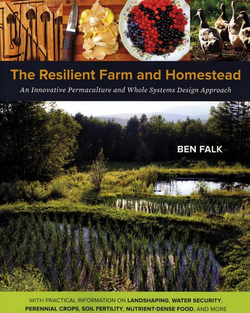 Ben Falk's book is a must for cold climate Permaculture designers, homesteader's and anyone keen to learn from insightful and experienced holistic decision making. We thoroughly enjoyed the read, and most importantly from our perspective; it's a work based on raw experience, dedication and enthusiasm. Permaculture design is learnt by doing; we need more practitioners out on the ground working professionally & implementing resilient and effective solutions restoring ecosystems, connecting people to bring about robust local economies & exchange systems and meeting our human needs holistically. This book supports those objectives, written in a refreshing tone that sets aside theory from observed practice. Ben has a diverse and deep design experience, and we are very excited to have him join us this spring for the first PDC at the farm as a guest lecturer via conference call. Peter Bane wrote a nice review for Permaculture Activist which gets deeper into different aspects of the book if you are interested. If you are considering taking a Permaculture Design Course this year check out the listings at the farm, where we are proud to have some of the leading global practitioners & researchers join us via digital link up, as well as local expertise joining us for different trainings. Details are getting posted on relevant course listings as they come in.
We are also excited to offer what we think is a unique learning opportunity in Europe- our 10 Week Professional Permaculture Accelerator Internship. We might be biased, but we think it's the most exciting Permaculture event happening in Europe this year, including over 530hrs of curriculum based learning & 5 Certificate Courses with some awesome folks joining us on the ground & via teleconference as we initiate this flagship project;
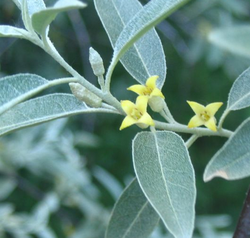 We can think of at least 180 great forest garden & perennial crops for cold climate Sweden. Want to hear about them? Over the course of the next year we will profile 5 a week on the blog. Perennial plants and crops offer a low energy, oil & resource input based foundation for future-proof agricultures. By default if an agriculture is to be called regenerative the bottom line is that it must be soil building, not soil depleting. Relentless deep tillage & poor soil husbandry (wifery?!) contributes to the majority of the 24 billion tons of topsoil lost every year on planet water. We are going to be focused on holistic polyculture grazing and perennial production at ridgedale over most of the site as this represents the most effective way to restore our degraded landscape, produce high value produce and ensure the future resource base we are managing holistically for in our decision making. 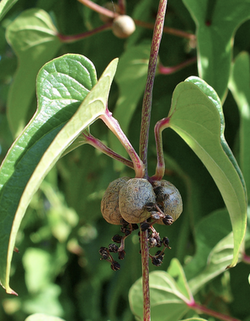 Dioscorea opposita, Chinese yam Dioscorea opposita, Chinese yam We can think of at least 180 great forest garden & perennial crops for cold climate Sweden. Want to hear about them? Over the course of the next year we will profile 5 a week on the blog. Perennial plants and crops offer a low energy, oil & resource input based foundation for future-proof agricultures. By default if an agriculture is to be called regenerative the bottom line is that it must be soil building, not soil depleting. Relentless deep tillage & poor soil husbandry (wifery?!) contributes to the majority of the 24 billion tons of topsoil lost every year on planet water. We are going to be focused on holistic polyculture grazing and perennial production at ridgedale over most of the site as this represents the most effective way to restore our degraded landscape, produce high value produce and ensure the future resource base we are managing holistically for in our decision making. 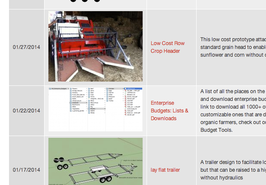 Open Source mod's @ Farmhack.net Open Source mod's @ Farmhack.net As well as Well Engineered Stuff we also like innovative use of tools & machines that make farming less debt reliant; a core aspect of Regenerative Agriculture. Inspired by Darren J. Doherty's innovative adaptations of the Yeoman's Plow (and subsequent other mod's from others) we are tricking out our own Yeomans 6SB to accommodate forhigh quality tree planting as well as seeding, biofert/ compost tea applications and hopefully in the future pasture cropping to close the loop on our pastured broiler & pig enterprises. There's a couple of awesome sites everyone should know about if they don't already.... 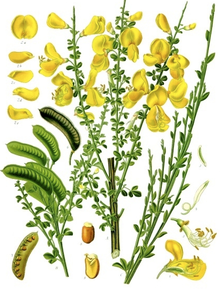 Cytisus scoparius, Scotch broom Cytisus scoparius, Scotch broom We can think of at least 180 great forest garden & perennial crops for cold climate Sweden. Want to hear about them? Over the course of the next year we will profile 5 a week on the blog. Perennial plants and crops offer a low energy, oil & resource input based foundation for future-proof agricultures. By default if an agriculture is to be called regenerative the bottom line is that it must be soil building, not soil depleting. Relentless deep tillage & poor soil husbandry (wifery?!) contributes to the majority of the 24 billion tons of topsoil lost every year on planet water. We are going to be focused on holistic polyculture grazing and perennial production at ridgedale over most of the site as this represents the most effective way to restore our degraded landscape, produce high value produce and ensure the future resource base we are managing holistically for in our decision making. 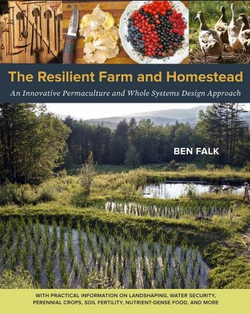 Ben Falk's book is a must for cold climate Permaculture designers, homesteader's and anyone keen to learn from insightful and experienced holistic decision making. We thoroughly enjoyed the read, and most importantly from our perspective; it's a work based on raw experience, dedication and enthusiasm. Permaculture design is learnt by doing; we need more practitioners out on the ground working professionally & implementing resilient and effective solutions restoring ecosystems, connecting people to bring about robust local economies & exchange systems and meeting our human needs holistically. This book supports those objectives, written in a refreshing tone that sets aside theory from observed practice. Ben has a diverse and deep design experience, and we are very excited to have him join us this spring for the first PDC at the farm as a guest lecturer via conference call. 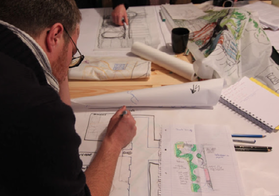 What will you do with this? What will you do with this? Wanting to take a Permaculture Design Course (PDC)? Wondering what you get out of taking a course like this & how they differ around the world? There are regular courses all over the world now and because Permaculture is decentralized there is a great variance in different courses, which we have observed on our travels working & teaching around the world. We've compiled a list of 10 reasons why taking a training with us represents a good investment in both your own learning pathway and offers points well worth reflecting upon generally if you are considering taking a similar training... 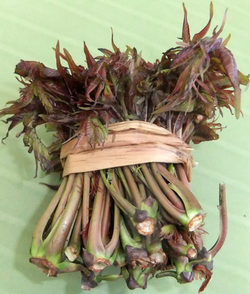 Cedrella sinensis, Fragrant spring tree Cedrella sinensis, Fragrant spring tree We can think of at least 180 great forest garden & perennial crops for cold climate Sweden. Want to hear about them? Over the course of the next year we will profile 5 a week on the blog. Perennial plants and crops offer a low energy, oil & resource input based foundation for future-proof agricultures. By default if an agriculture is to be called regenerative the bottom line is that it must be soil building, not soil depleting. Relentless deep tillage & poor soil husbandry (wifery?!) contributes to the majority of the 24 billion tons of topsoil lost every year on planet water. We are going to be focused on holistic polyculture grazing and perennial production at ridgedale over most of the site as this represents the most effective way to restore our degraded landscape, produce high value produce and ensure the future resource base we are managing holistically for in our decision making. 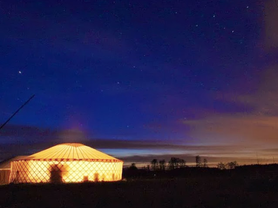 One of the two 9m (30ft) Gers I made last year One of the two 9m (30ft) Gers I made last year Having built over a dozen Ger's (yurts with straight roof poles) I have used various resources in the past, starting in the beginning with my first Ger through simple observation and visualization. Over time I started using other people's templates, and by far the best resource I have come across is the website linked below. Great for low impact living, training spaces, parties, etc, these low cost portable structures are simple to make with basic sewing and carpentry skills, and can even be made snow proof for up to 1m of snow in line with engineering codes. |
Details
Like us on FB Below for regular updatesStay up to date with customized updates you want to receive
Upcoming coursesArchives
December 2016
Categories
All
|
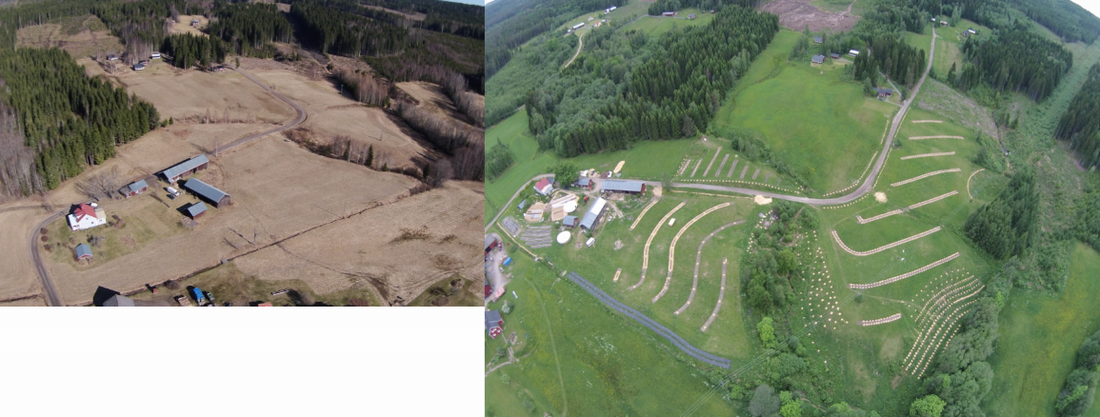

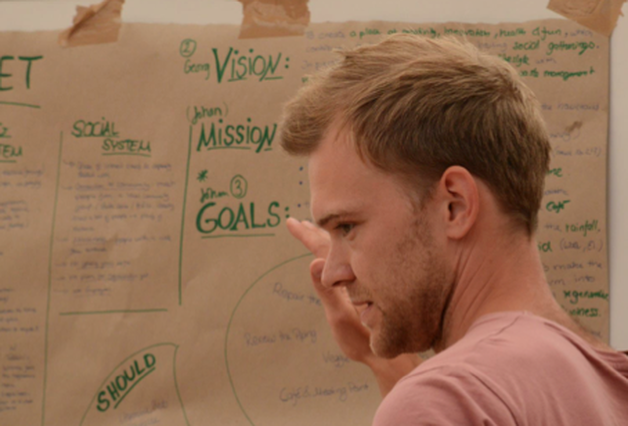
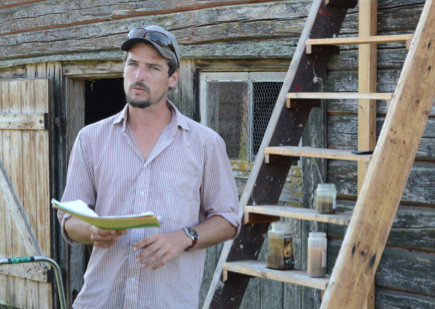
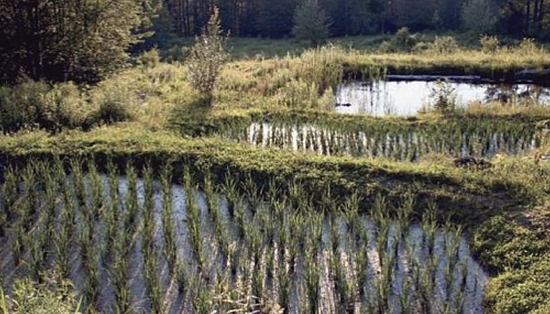

 RSS Feed
RSS Feed